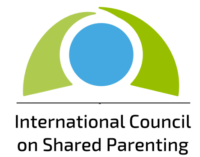| Myth | Truth |
| Shared parenting is a “one size fits all” arrangement. | Shared parenting is an extremely flexible approach to separated parenting. There are many different equal shared parenting schedules to fit the needs of different families. Research supports schedules tailored to the ages of children with shorter exchange periods for younger children. But it does not support unequal parenting time even for infants and toddlers. Baude et al., 2016; Fabricius, 2020 |
| Parenting roles should remain the same after separation and divorce. | Parenting roles usually must change after separation and divorce. The experience of one parent taking on more parenting responsibilities and another pursuing career activities can provide for more enriching experiences for the children with each parent. Children raised in shared parenting arrangements demonstrate better adjustment, across several domains including family relationships, behavioral adjustment, emotional well-being, and academic achievement than children who remain in the sole custody of one parent regardless of how parenting roles were handled when the parents lived together. Fabricius & Hall, 2005; Emery, 2004; Fabricius, 2003; Bauserman, 2002 |
| Shared parenting increases parental conflict. | There is no scientific support for the claim that shared parenting increases parental conflict. In fact, both mothers and fathers practicing shared parenting report less conflict and more emotional support and positive feelings with their ex-spouses. Bauserman, 2012; Kruk, 2013; Nielson, 2017 & 2018 |
| Shared parenting increases domestic violence (intimate partner violence). | Recent research has demonstrated just the opposite: presumptions of equal shared parenting reduce the incidence of intimate partner violence and female partner homicides. Fernández-Kranz, et al., 2020 |
| Presumptions of shared parenting have been tried and were found unsuccessful. | There are no examples in which presumptive shared parenting legislations were reversed because of unsuccessful outcomes. A California example that is sometimes cited as a retrenchment from shared parenting was, in fact, a clarification that the previous law did not, in fact, create a presumption in favor of shared parenting. Public polling demonstrates that presumptions of shared parenting are popular with the public and research has shown that equal shared parenting presumptions are favored by divorce professionals. Fabricius, et al., 2018 |
| Shared parenting arrangements are unstable and tend to turn into a sole custody arrangement, except in name. | While a very old (1980s) study in California suggested that shared parenting arrangements tended to drift over time to sole maternal custody arrangements, recent research has demonstrated that “the living arrangements of children with shared placement were at least as stable as those of children with sole mother placement.” Bartfield, et al., 2021 |
| Even though shared parenting is better for children, there should be no legal presumptions about parenting time. | Legal presumptions of equal shared parenting provide parents and children with assurances that their relationship will be protected. Young adults who were raised by divorced parents wish that they had more equal parenting time with both their parents. Fabricius, 2003 & 2020 |
| Fathers could share in the physical custody of their children more if they wanted to share equally in the responsibility of raising children. |
Child support often limits a father’s financial ability to set up a residence that supports equal shared physical custody. The legal costs required to fight for equal parenting time often deter parents from asking for equal time. Fabricius and Braver, 2003; Braver, 1998; Wallerstein and Blakeslee, 2004 |
| Children will be less supported financially if they spend equal time living with fathers because it will decrease the amount of child support the father must pay. |
Financial support for children can be either direct, what parents spend themselves on the children, or indirect, what one parent gives the other to spend on the children. Equal shared parenting often results in less indirect spending on a child but, it always results in much more direct spending. The more time children spend in the care of their fathers, the more money fathers spend on supporting the children. Wallerstein & Blakeslee, 2004; Braver, 1998, Fabricius & Braver, 2003 |
Download the full document including annotated references here
